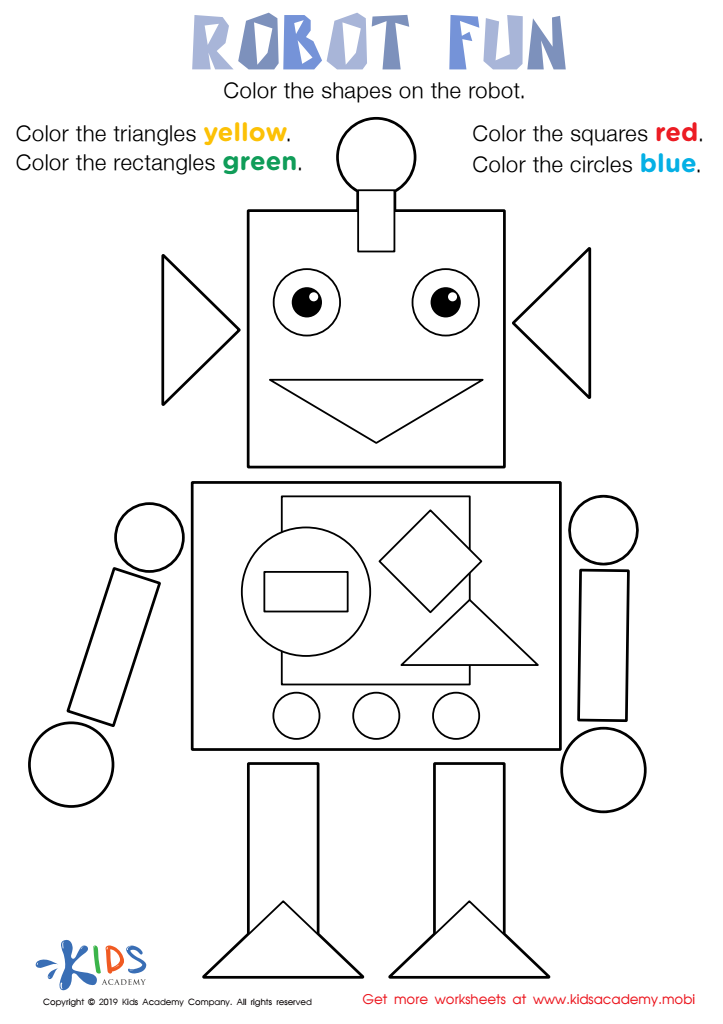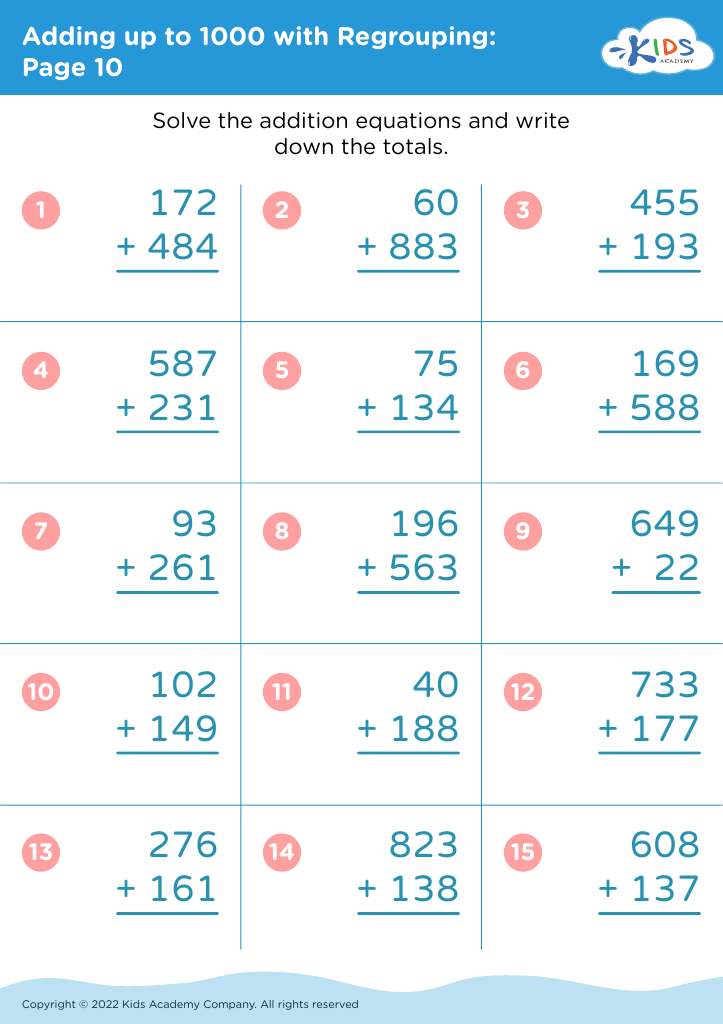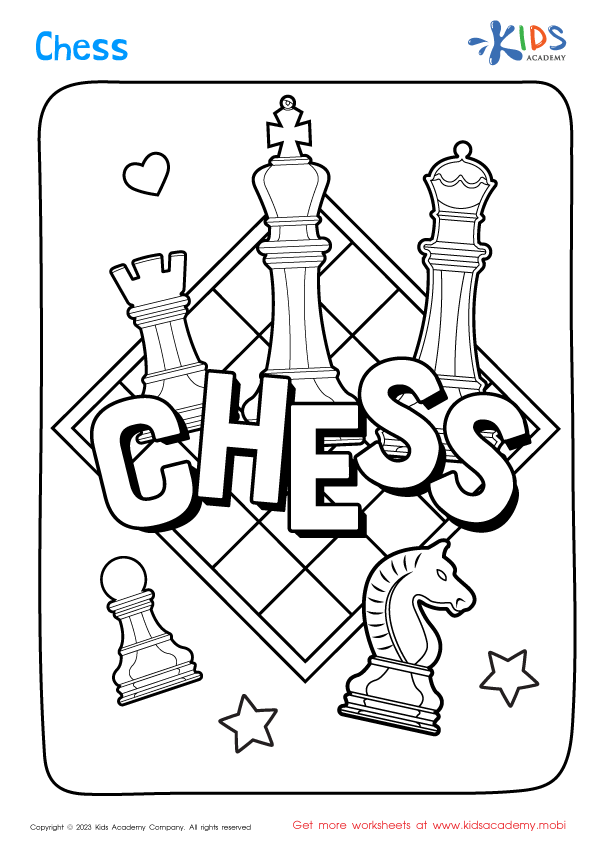Developing fine motor skills Worksheets for Ages 6-8
6 filtered results
-
From - To
Explore our engaging fine motor skills worksheets designed specifically for children aged 6-8! These resources are perfect for enhancing hand-eye coordination, dexterity, and control through fun activities. Each worksheet incorporates colorful illustrations and interactive exercises, allowing kids to practice skills such as tracing, cutting, and coloring. Our comprehensive activities not only promote fine motor precision but also encourage creativity and problem-solving. Ideal for both classroom use and home learning, these worksheets align with early childhood education standards and make skill development enjoyable. Help your child thrive with these essential tools and watch their confidence soar as they master fine motor skills!


Robot Fun Worksheet
Developing fine motor skills in children aged 6-8 is crucial for their overall growth and learning. At this stage, children are refining the small muscle movements necessary for tasks such as writing, forming letters, and using scissors. These skills directly impact their academic performance; proficient fine motor skills can lead to improved handwriting and better control over various classroom activities.
Moreover, strong fine motor skills enhance a child's ability to independently perform daily tasks like buttoning shirts, tying shoes, and using utensils, fostering confidence and self-sufficiency. Additionally, these skills are instrumental in supporting cognitive development, as many fine motor tasks are linked to problem-solving and spatial awareness.
For teachers, promoting fine motor development helps create a more inclusive learning environment, where children can express themselves effectively and participate fully in classroom activities. Parents and teachers can work collaboratively to integrate fine motor skill activities into play and daily routines, such as arts and crafts or cooking, thereby promoting engagement and making learning fun. Ultimately, prioritizing fine motor skills lays the foundation for a child's success in school and life, making it essential for both educators and parents to take an active role in this developmental aspect.

 Assign to My Students
Assign to My Students



















